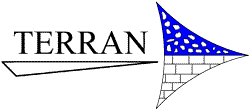Background
Risk assessment (RA) is the process of evaluating potential negative outcomes in response to applied stresses. Two questions are usually addressed during the RA process. First, is known contamination causing (or could it cause) impacts to human health and the environment? If so, the second question addresses the level to which contaminants should be reduced to ensure that no future human health or environmental impacts occur. This question is often stated as "How Clean Is Clean?"Both human health and ecological risk assessment have four key parts. The first is to understand an individual chemical's toxicological characteristics. The second is to establish any toxicity dose-response characteristics of the chemical (i.e. establish if a threshold concentration exists). The third is to establish exposure concentrations for the compound for all likely receptors. The fourth step is risk characterization which ties chemical exposure to the toxicological effects of that chemical on receptors.Risk management is the process by which non-technical factors are brought into the decision making process during evaluation of "How Clean Is Clean?" Risk management factors that are typically evaluated include the current and future surrounding area land use and the presence of "higher risk" populations.
Purpose
Numerous environmental issues revolve around answers to questions that can be addressed using the risk assessment process. Discharges, releases, spills, leaks and landfills can all cause chemical contamination in the environment. If remediation is required, risk assessments are used to evaluate potential impacts and establish cleanup criteria to support remedial design activities. Other key environmental issues addressed by RA include product registration, establishment of landfarm application amounts, NPDES discharge limits, and air emissions permit conditions.
Terran's Experience
Terran scientists, professional staff and consultants have successfully performed risk assessments for various client needs and regulatory requirements. Projects have covered both Federal regulatory programs including RCRA, CERCLA, TSCA, and NPDES, and State regulatory programs. Risk assessment is a multidisciplinary undertaking, requiring knowledge in human toxicology, ecotoxicology, chemical fate and transport properties, surface and subsurface hydrology, and soil chemistry. Terran's breadth of knowledge and experience, supported by a national network of senior medical and toxicological scientists, provides the knowledge base necessary for completion of high quality risk assessments.
